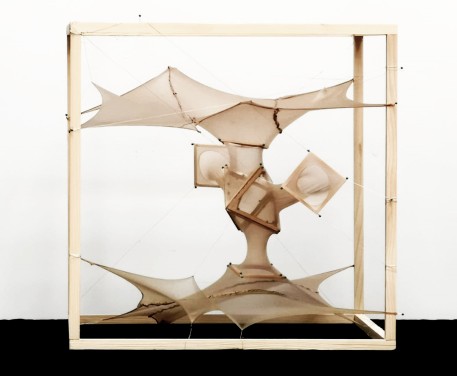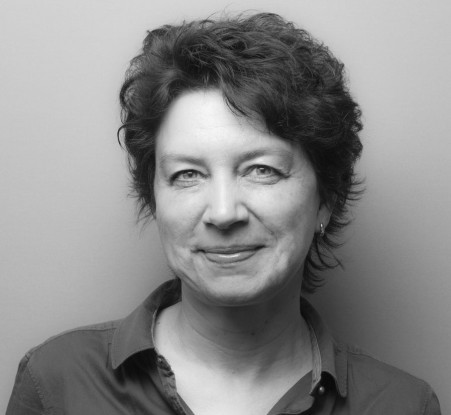The Micro Factory
The Design Studio “THE MICRO FACTORY” speculated about the design potential of buildings made from rotoformed concrete elements. Rotoforming is a production process in which a minimal amount of liquid material is poured into a mould made from hyperelastix prestressed membranes. The concrete coats the wall of the slowly rotating formwork, but does not fill the entire mould. Participants were invited to investigate the structural, constructional and architectural possibilities of designing and building with rotoformed constructions.
Students designed an E-Scooter Micro Factory. The design proposals deliver proposals for small scale, decentralized urban production. The E-Scooter Micro Factory repurposes a unused bunker in Frankfurt Hoechst from WW II. The bunker’s massive concrete structure form a strong contrast to the novel concrete elements made with rotoforming and membrane formwork. The group explored subtractive design procedures for the massive envelope and the lightweight re-design of the interior with an additive (rotoforming) approach.
Participants:
Danial Ahmad, Leonard Fatio, Timm Glaetzer, David Jasen in de Wal, Martin Knoll, Gerardo Lorenzen, Andreas Schmid, Maria Steinach, Ece Ulu, Martina Wirth, Yufeng Wang, Maylin Yuka, Borui Zhang,
Tutor:
Samim Mehdizadeh, Oliver Tessmann
Jury:
Philippe Block, Karsten Tichelmann, Holger Hoffmann
Scaled Skate Factory
Danial Ahmad, Ece Ulu, Maylin Yuka
Undulating indoor landscapes and mushroom-shaped column carry the load of the bunker.
Under Pressure
Timm Glätzer, Andreas Schmid
Two interwoven spatial continua made from prestressed and pressurized membrane formwork
Forest of RotoColummns
Leonard Fatio, Yufeng Wang
A forest of RotoColumns creates spaces and platform inside and outside the bunker.
Twisted Space
Martin Knoll, Gerardo Lorenzen
A seines of minimal surface-spaped tubes carry platform and organize the vertical circulation.
Connex
David Jasen in de Wal, Borui Zhang,
A series of repetitive modules form the spaces of the micro factory.











































